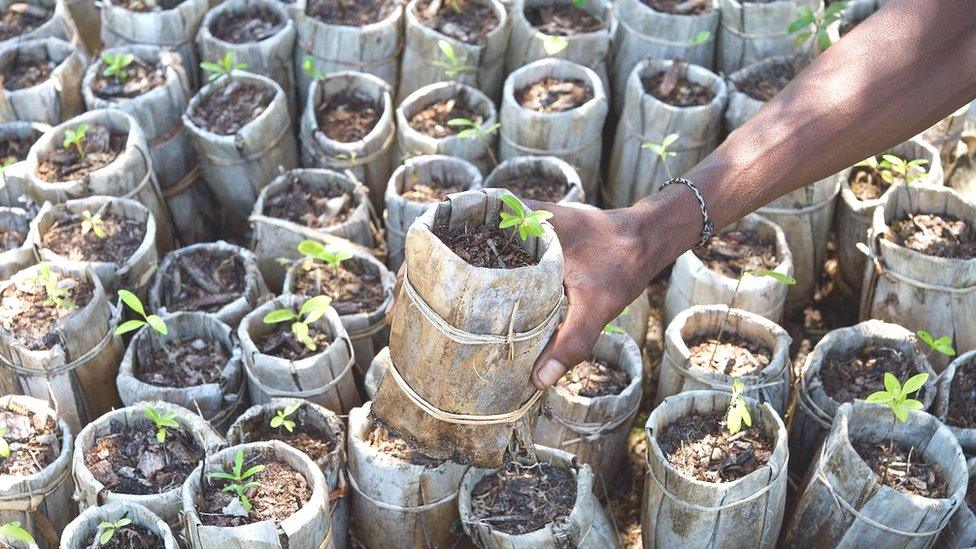Climate change: Human activity makes forests emit carbon
- Published
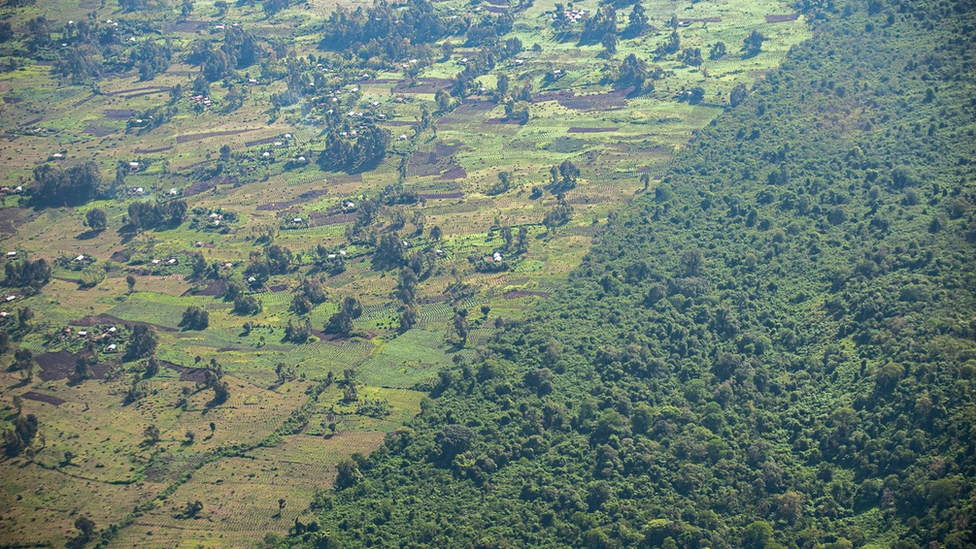
Ten of the world's most protected forests have become net emitters of carbon, as they are degraded by human activity and climate change.
The alarming insight is from a study of planet-warming gases emitted from and absorbed by forests in Unesco World Heritage sites, external.
It revealed 10 protected forests had emitted more carbon than they locked away over the past 20 years.
World heritage forests span an area twice the size of Germany.
The same research also revealed the network of 257 World Heritage forests around the world collectively removed 190 million tonnes of carbon from the atmosphere every year.
"That is nearly half of the UK's annual carbon emissions from fossil fuels," said Dr Tales Carvalho Resende, from the United Nations Educational, Scientific and Cultural Organization (Unesco), who co-authored the report.
"We now have the most detailed picture to date of the vital role that [these] forests play in mitigating climate change."
But forests face a raft of pressures, including illegal logging, the expansion of farming and wildfires - which are made more likely by climate change.
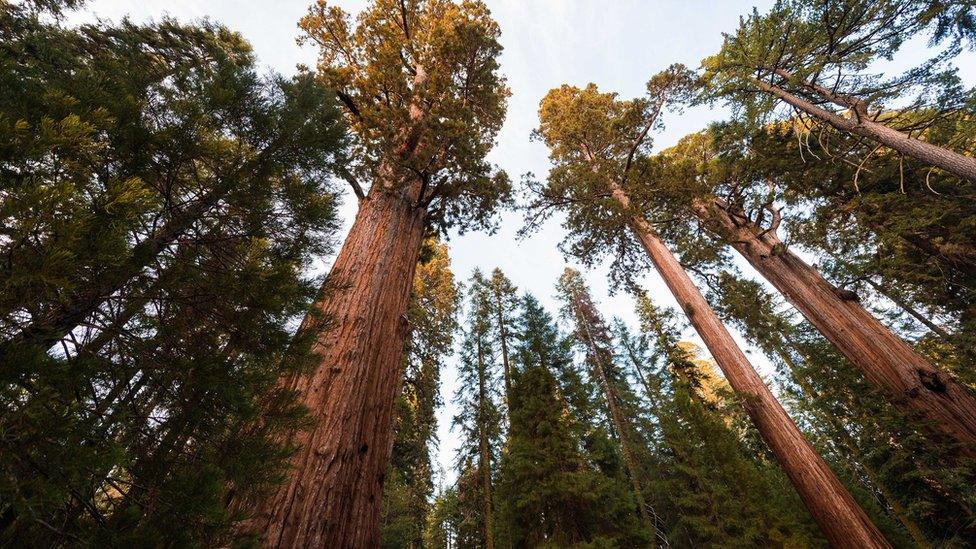
Giant sequoias in California - some of the oldest living things on Earth - have been lost to wildfire
Combining satellite-derived data with monitoring information at the site level, researchers estimated the carbon absorbed and emitted by World Heritage forests between 2001 and 2020.
But as well as calculating the billions of tonnes of carbon absorbed by all that "biomass" of trees and vegetation, the research revealed how much pressure some of these sites were under.
The sites studied in this assessment have some of the highest levels of official protection.
They are deemed globally significant in terms of their natural value to the world and are closely and continuously monitored.

Pimachiowin Aki is a World Heritage site in Canada
"But they're still under significant pressure," Dr Carvalho Resende said.
"The main pressures are agricultural encroachment, illegal logging - human-induced pressures.
"But we also found climate-related threats - most specifically wildfires."
'Vicious cycle'
In recent years, what Unesco called "unprecedented wildfires", notably in Siberia, the US and Australia, have generated tens of millions of tonnes of CO2.
"It's a vicious cycle," Dr Carvalho Resende said.
"More carbon emissions means more wildfires, which means more carbon emissions."
And wildfires are not the only climate-related threat.
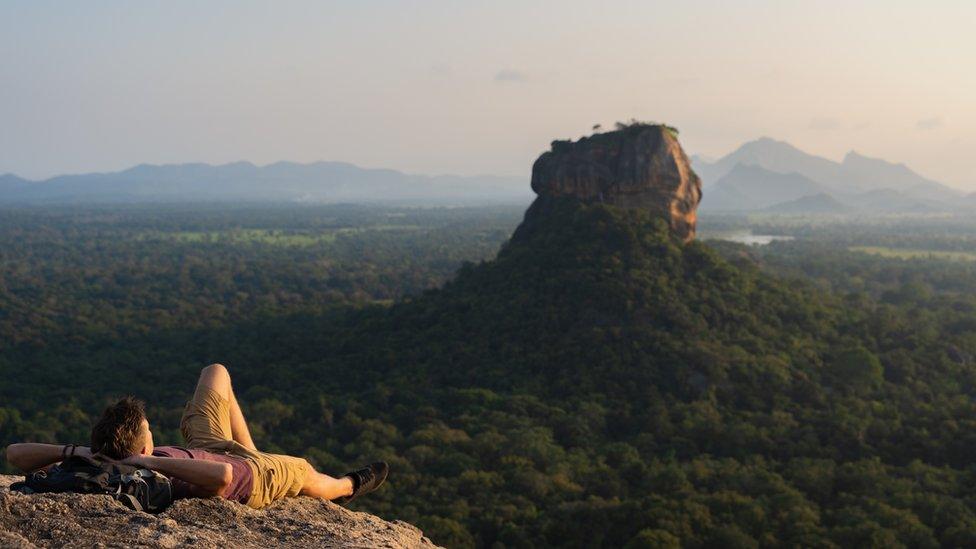
Sigiriya in Sri Lanka is a World Heritage site with a forest

World Heritage sites that were net carbon contributors from 2001-2020
The tropical rainforest in Sumatra, Indonesia
The Río Plátano Biosphere Reserve, Honduras
Yosemite National Park, US
Waterton Glacier International Peace Park, Canada and US
The Barberton Makhonjwa Mountains, South Africa
Kinabalu Park, Malaysia
The Uvs Nuur Basin, Russia and Mongolia
Grand Canyon National Park, US
The Greater Blue Mountains area, Australia
Morne Trois Pitons National Park, Dominica

'Alarming message'
Hurricane Maria destroyed an estimated 20% of the forest cover in Morne Trois Pitons National Park, Dominica, in 2017.
"There's an alarming message from this study," Dr Carvalho Resende said.
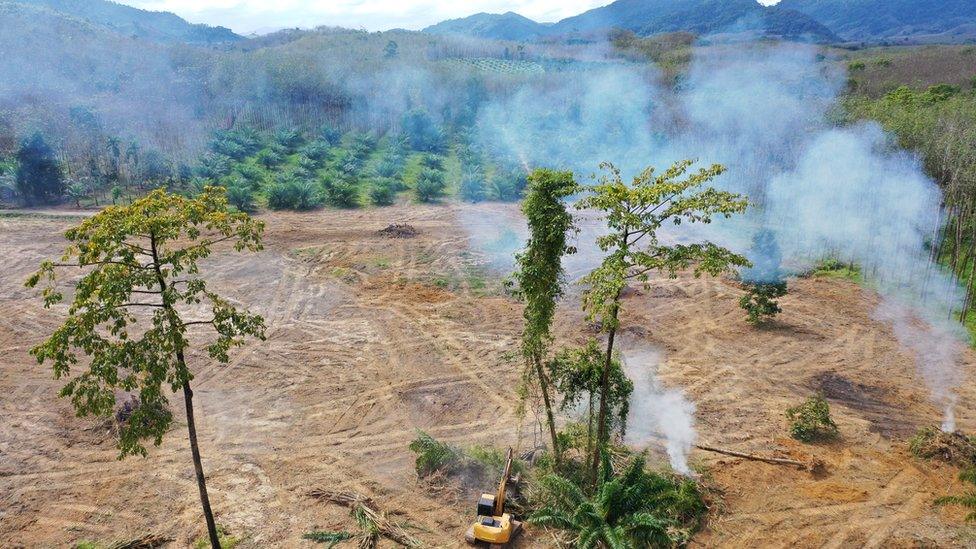
Logging and farming in Sumatra, Indonesia, are contributing to carbon emissions
"Even the best and most protected forest areas in the world are threatened by the global climate crisis.
"So action [to cut global emissions] is really needed now to ensure that these forests - that all forests - can continue to act as carbon sinks and, of course, as important sites for biodiversity."
Follow Victoria on Twitter, external.

You may also be interested in:
BBC Reality Check explains how to cut your carbon footprint

Related topics
- Published26 October 2021
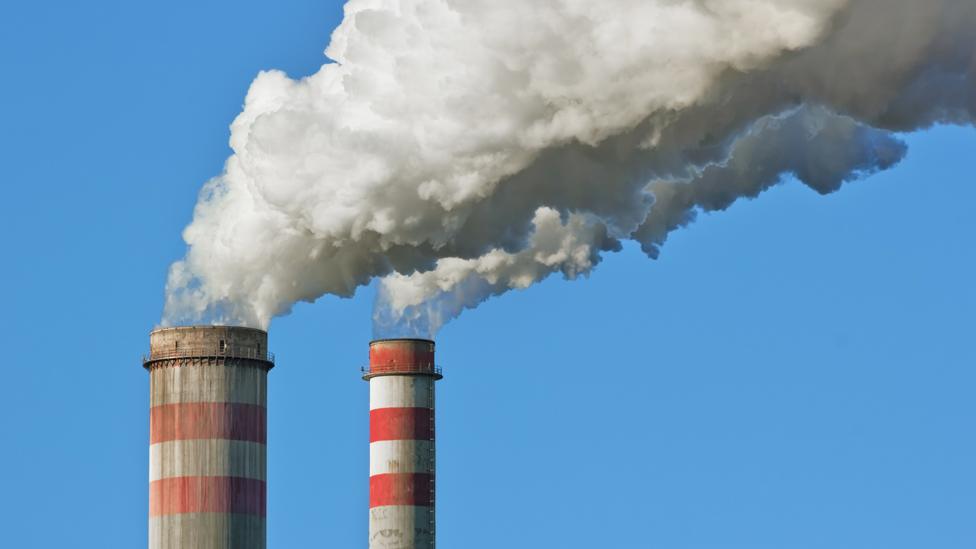
- Published26 January 2021
